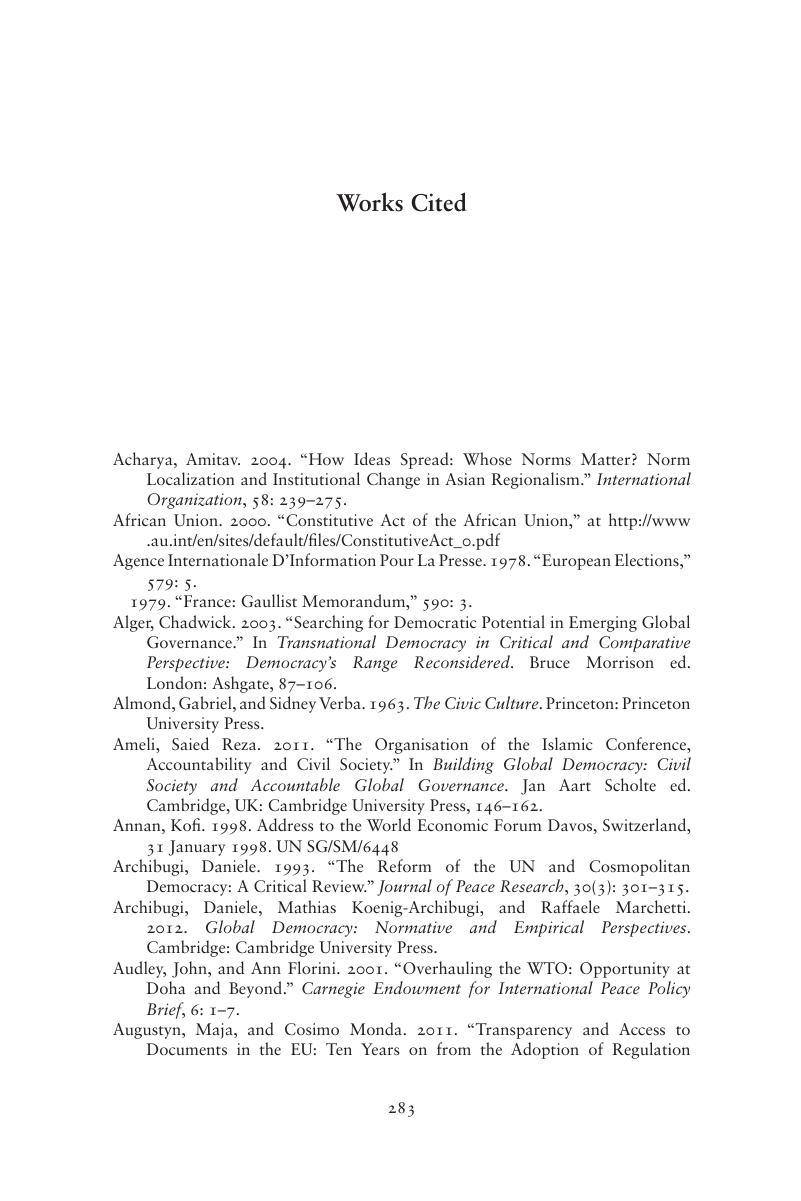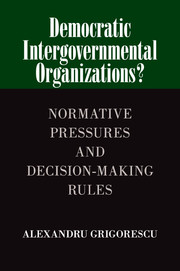Book contents
- Democratic Intergovernmental Organizations?
- Democratic Intergovernmental Organizations?
- Copyright page
- Contents
- Figures
- Tables
- Book part
- 1 Introduction: “Democratic” Intergovernmental Organizations
- 2 Normative Pressures and Strategies for Defusing Them
- 3 Fair State Participation
- 4 Fair Voting
- 5 Transparency
- 6 Participation of Nongovernmental Actors in Intergovernmental Organizations
- 7 Transnational Parliamentary Oversight
- 8 Conclusions: Summarizing and Interpreting the Main Trends
- Works Cited
- Index
- References
Works Cited
Published online by Cambridge University Press: 05 May 2015
- Democratic Intergovernmental Organizations?
- Democratic Intergovernmental Organizations?
- Copyright page
- Contents
- Figures
- Tables
- Book part
- 1 Introduction: “Democratic” Intergovernmental Organizations
- 2 Normative Pressures and Strategies for Defusing Them
- 3 Fair State Participation
- 4 Fair Voting
- 5 Transparency
- 6 Participation of Nongovernmental Actors in Intergovernmental Organizations
- 7 Transnational Parliamentary Oversight
- 8 Conclusions: Summarizing and Interpreting the Main Trends
- Works Cited
- Index
- References
Summary

- Type
- Chapter
- Information
- Democratic Intergovernmental Organizations?Normative Pressures and Decision-Making Rules, pp. 283 - 310Publisher: Cambridge University PressPrint publication year: 2015



